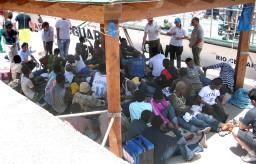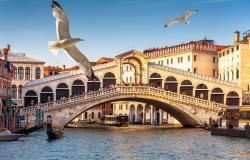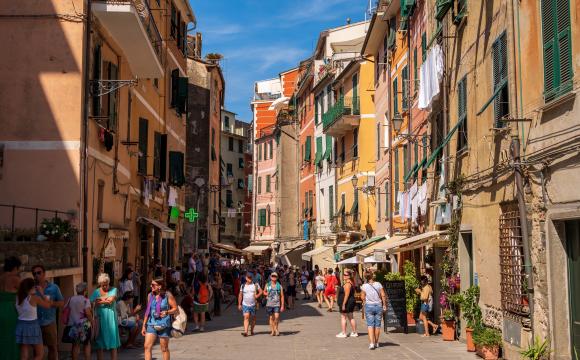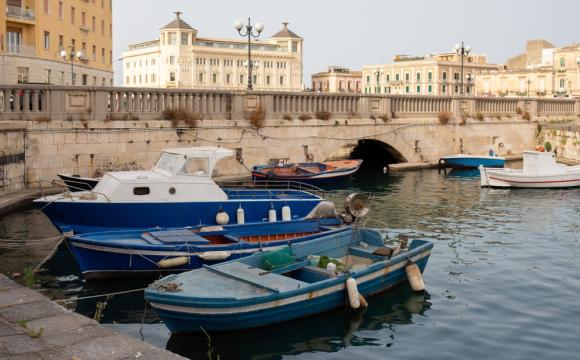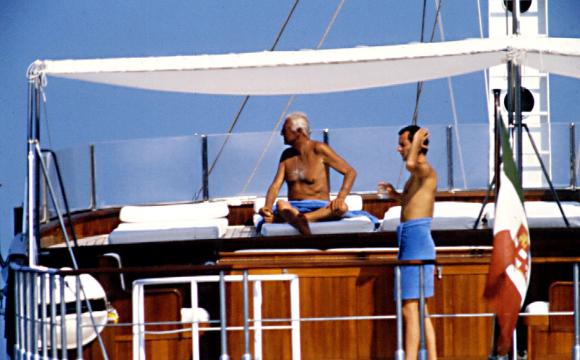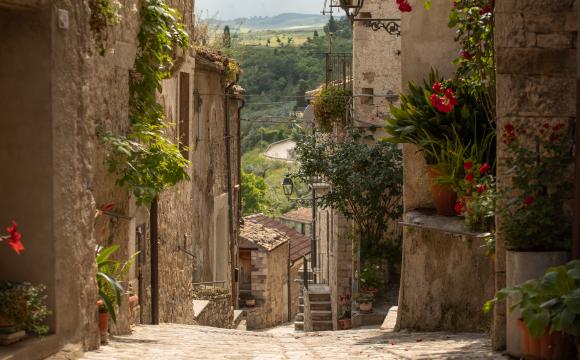Italian Foreign Minister Franco Frattini on Tuesday reiterated an appeal for European Union assistance on illegal immigration to help lift the pressure off southern European countries bearing the brunt of the emergency.
Speaking after a meeting with his Maltese counterpart Tonio Borg, Frattini said Italy and Malta would try to avoid the repeat of an incident in April which saw a four-day stand-off between the two countries on rescuing a Turkish freighter, the Pinar, carrying 140 migrants and the dead body of a pregnant woman.
Italian Premier Silvio Berlusconi eventually ordered the migrants to be rescued on humanitarian grounds.
Frattini said Italy and Malta would collaborate to prevent similar events via patrols near the Libyan coasts, ''from which 95% of immigrants set off''.
EC commisioners are on Wedneday set to examine a plan to relieve the pressure of illegal immigration on Italy, Malta, Spain, Cyprus and Greece ahead of a meeting of EU interior ministers next week.
According to a draft of the document, Brussels will propose working with Libya and the United Nations' refugee agency UNHCR to set up an asylum vetting centre in the country.
It also proposes the redistribution of immigrants who have been granted international protection to other European countries.
Frattini has meanwhile welcomed European Commission President Jose' Manuel Barroso's decision to include the immigration issue on the agenda of the June EU leaders' summit.
Italy and Malta have long been lobbying for increased EU aid and after the Pinar case European Justice Commissioner Jacques Barrot said the EC was ready to offer financial help to the two countries.
Italian Interior Minister Roberto Maroni at the time called on the EU to reinforce the role of its border agency Frontex, suggesting that it should be made responsible for the creation and management of ''EU repatriation centres''.
If Europe shared the burden of arrivals in this way, ''the problem would resolve itself'' and cases like that of the 140 stranded migrants ''would never happen'', he said.
TRILATERAL TALKS PROPOSED.
Italy is meanwhile planning to host trilateral talks with Malta and Libya on illegal immigration next month, Foreign Minister Franco Frattini said Tuesday.
Speaking after meeting his Maltese counterpart Tonio Borg, Frattini said the talks would be held on June 9 during a visit by Libyan Foreign Minister Mussa Kussa to Rome. The aim of the talks will be to ''coordinate a joint action'' with Libya, Frattini said.
With almost 800 kilometres of coastline, Libya has become a key stepping-stone for African migrants seeking to enter Europe, most of them through Malta, Sicily and the southern Sicilian island of Lampedusa.
Italy this month launched a controversial new policy of turning back to Libya boats of would-be immigrants and possible asylum seekers trying to reach the country's southern shores despite criticism from the United Nations, the Catholic Church and humanitarian organisations.
Frattini said Italy and Malta planned to put pressure on Libya to grant full diplomatic powers to UNHCR so that it will be able to vet the asylum claims of would-be migrants.
''What has been missing until now is the formal accreditation by Libya of the United Nations agency, which is accepted and recognised but does not have formal diplomatic guarantees''.
''Malta and Italy are working together to reach this objective,'' he said.
Frattini added that Libya had expressed willingness to work with UNHCR, describing this as ''an important step forward''.
Last week the UNHCR complained that Libya does not allow its representatives to visit all its migrant holding centres.
The UNHCR's spokeswoman in Italy, Laura Boldrini, told RAI radio that although the agency has an office in Tripoli with local staff and two foreign representatives, it is there ''unofficially''.
Frattini said last week that Italy would also ask Libya to allow the International Organisation for Migration (IOM) to organise the repatriation of migrants in its holding camps.
Costs for the repatriations would be funded by the European Union if the 27-nation Union agrees, Frattini said.
